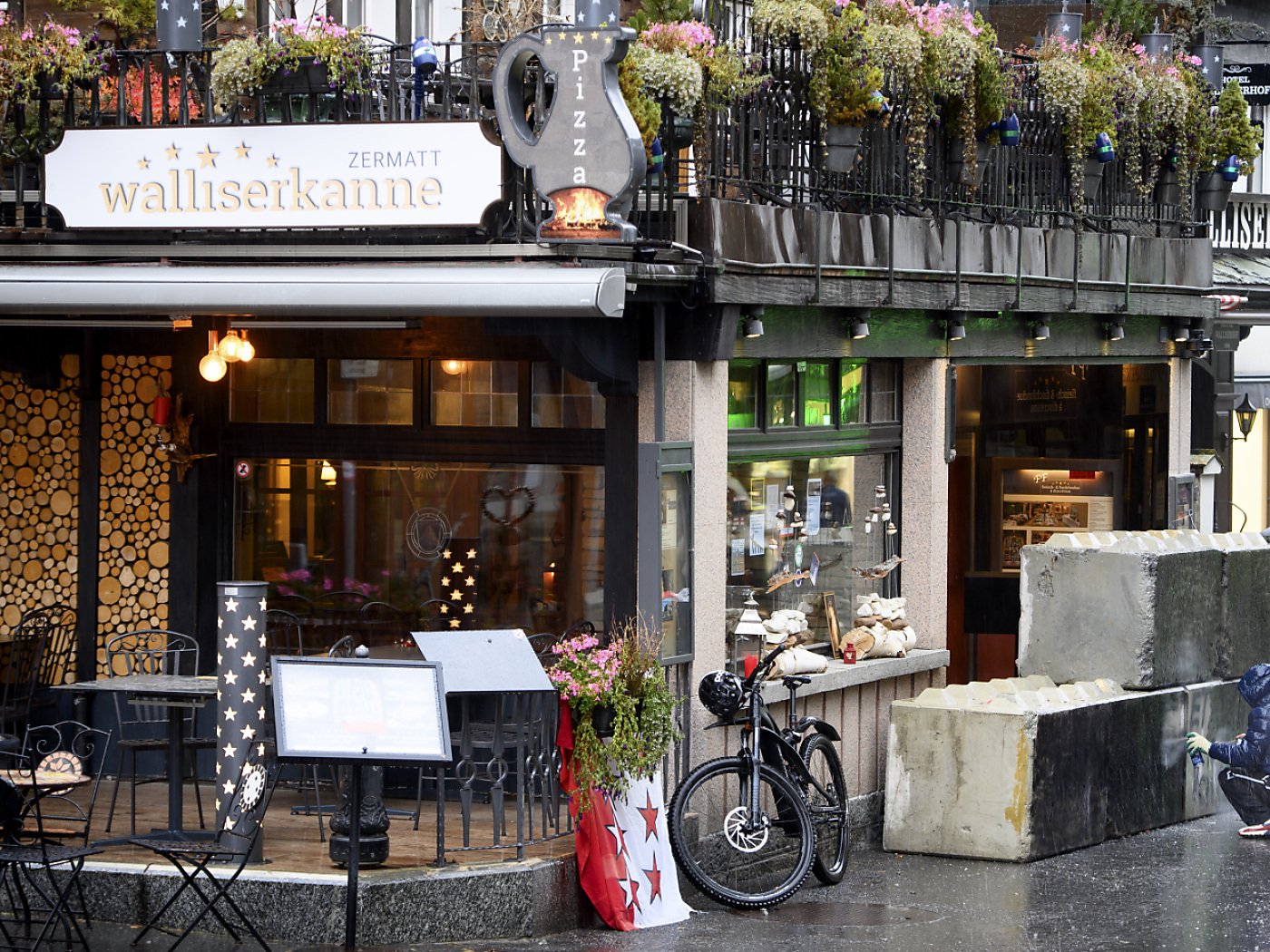
Zermatt restaurateurs sentenced for defying Covid-19 measures

A Swiss court has given three restaurateurs in Zermatt, who were arrested in 2021 during the pandemic after repeatedly ignoring police orders to close their establishment, suspended sentences and fines.
+ Get the most important news from Switzerland in your inbox
Their restaurant, the Walliserkanne, was closed for two weeks at the end of October 2021 by order of the Valais government. The three landlords, a married couple and their son, have received conditional fines between CHF7,680 and 9,750 with a probation period of two or three years.
+ Zermatt restaurateurs who defied Covid measures released
Immediately after the public reading of the verdict by the district court in Visp in Valais, the lawyers for the three defendants announced that their clients would appeal to the cantonal court.
During official controls in October 2021, the Valais police discovered that their restaurant in Zermatt had violated several anti-Covid measures. In particular, staff were not wearing face masks and were not checking customers’ contact details and Covid certificate.
Translated from German by DeepL/sb
This news story has been written and carefully fact-checked by an external editorial team. At SWI swissinfo.ch we select the most relevant news for an international audience and use automatic translation tools such as DeepL to translate it into English. Providing you with automatically translated news gives us the time to write more in-depth articles.
If you want to know more about how we work, have a look here, if you want to learn more about how we use technology, click here, and if you have feedback on this news story please write to english@swissinfo.ch.

In compliance with the JTI standards
More: SWI swissinfo.ch certified by the Journalism Trust Initiative





























You can find an overview of ongoing debates with our journalists here . Please join us!
If you want to start a conversation about a topic raised in this article or want to report factual errors, email us at english@swissinfo.ch.